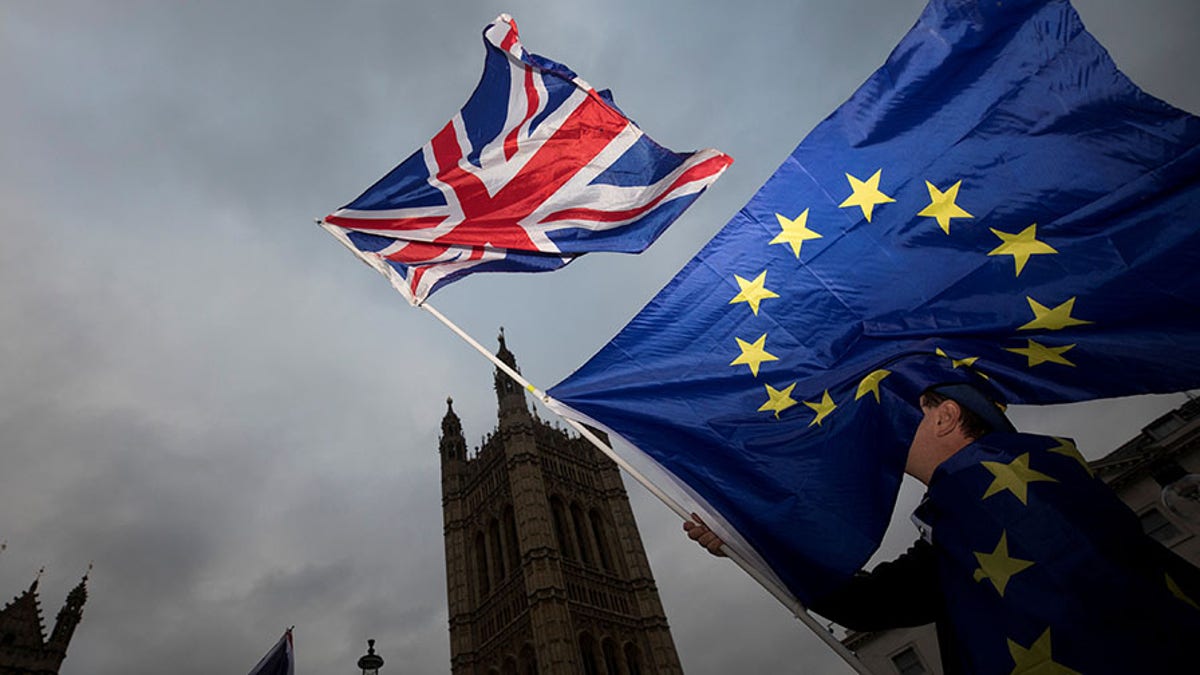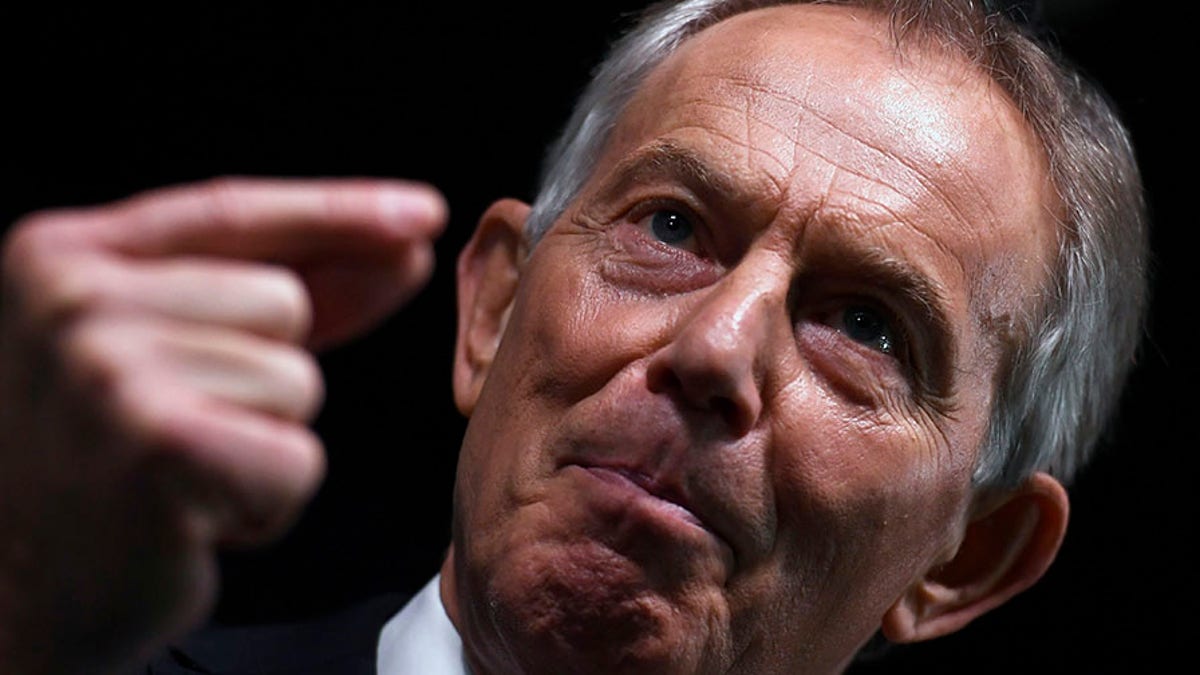
As divorce talks between the EU and U.K. heat up, some anti-Brexit politicians want a redo. (Reuters)
Nearly two years after British voters sent political shockwaves across the globe by voting to leave the European Union, and with U.K.-EU divorce talks heating up, Britain’s pro-EU establishment is pushing hard to get Brits to “think again.”
Immediately after the June 2016 vote, calls for a second vote were muted by a broader consensus that the will of the voters should be respected. This was emphasized by the decision of then-Conservative Prime Minister David Cameron -- who campaigned against Brexit -- to resign the morning after the vote.
“The British people have voted to leave the European Union, and their will must be respected,” Cameron said in front of 10 Downing Street.
But almost two years later things are different. Current Prime Minister Theresa May, who also supported remaining in the EU, is leading a government that is intact but significantly weakened by elections in 2017.
U.K. and EU officials are now thrashing out terms of the divorce ahead of Britain’s departure in March 2019 -- including to what extent the U.K. should have access to the single market and customs union.
But as Britain stands at the brink of one of the most consequential political moments in post-war European history, pro-EU establishment voices, known as Remainers, sense an opportunity and are demanding that Brits be frog-marched back to the polls.
A second Brexit vote would at least would stop the 'whingeing and whining' of the Remainers.
Former Labour Prime Minister Tony Blair, who has been unapologetic in his calls for Britain to stay in the bloc, has been spinning a potential second referendum, not as an exercise in frustrating the will of the voters but as a chance for voters to “think again.”
“Once we know the alternative, we should be entitled to think again, either through Parliament or an election or through a fresh referendum, which will, of course, not be a rerun of the first because it will involve this time a choice based on knowledge of the alternative to existing E.U. membership,” he wrote in a piece for The New Statesman this month.
On a BBC radio show last week, Blair was taken to task by audibly exasperated host John Humphreys, who noted that not only had there been a referendum, but also a 2017 general election that had resulted in a Conservative government that had campaigned on seeing Brexit through.
“You risk civil disobedience here, don’t you?” Humphreys asked. “This is serious stuff, you really do. If you say to people, ‘We are going to give you a referendum and the choice is in or out and we will respect ... we will accept your decision, you the people,’ you are now saying: ‘actually, maybe not, maybe not.’”

Former Labour Prime Minister Tony Blair has called for a second referendum on Brexit. (Reuters)
“No I’m not saying that,” Blair responded. “I accept entirely the result of the 2016 referendum, I’m simply saying one very simple thing, which is that in 2016 you knew you wanted to get out of the European Union, but you didn’t yet see the terms of the alternative relationship.”
But Blair is not the only Remainer who is openly calling for a second Brexit vote. Former Deputy Prime Minister Nick Clegg published a book last year called “How to Stop Brexit (And Make Britain Great Again)," which called for a redo.
Lord Malloch-Brown, a former U.N. deputy secretary-general and former foreign minister heading up anti-Brexit movements, said this week that he wants a second referendum, although he conceded that the public mood hadn’t changed as much as he would have liked.
“I think people are changing their minds,” Malloch-Brown said in a BBC interview. “I agree they haven’t changed it as dramatically as I would like to see.”
Polling on the topic is far from clear. Some polls suggest that a new referendum could result in a vote to remain by as much as 10 points. However, Ladbrokes, one of the top U.K. bookies, said it would lean its odds toward a “Leave” outcome.
Brexit supporters also note that polls predicted a Remain win just days before the Leave camp triumphed.
Most Brexit supporters have opposed a second referendum, with Conservative MEP and Brexit campaigner Daniel Hannan accusing Blair of encouraging Brussels to offer the U.K. a worse deal.
However, Nigel Farage, the former head of the U.K. Independence Party and one of the main voices behind the push for a referendum in the first place, said Thursday that such a move at least would stop the “whingeing and whining” of the Remainers.
“I think if we had a second referendum on EU membership, we’d kill it off for a generation,” he said. “The percentage that would vote to leave next time would be very much bigger than it was last time round and we may just finish the whole thing off and Blair can disappear off into total obscurity.”